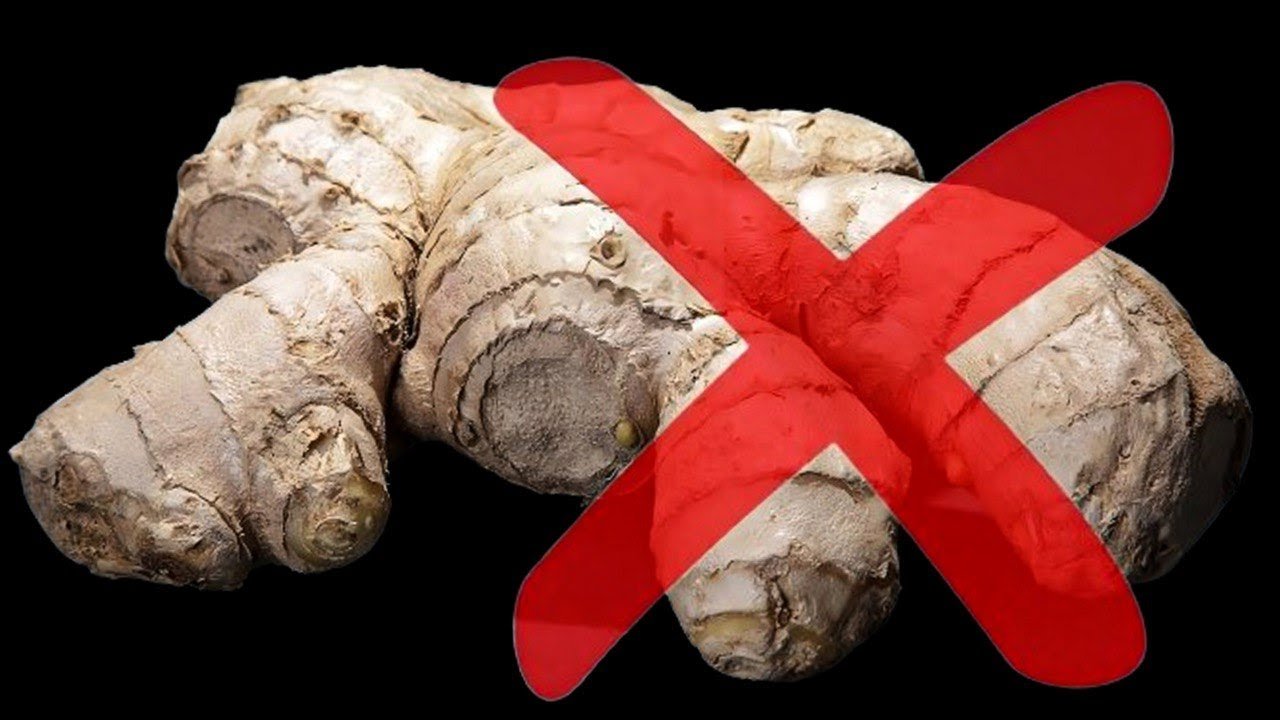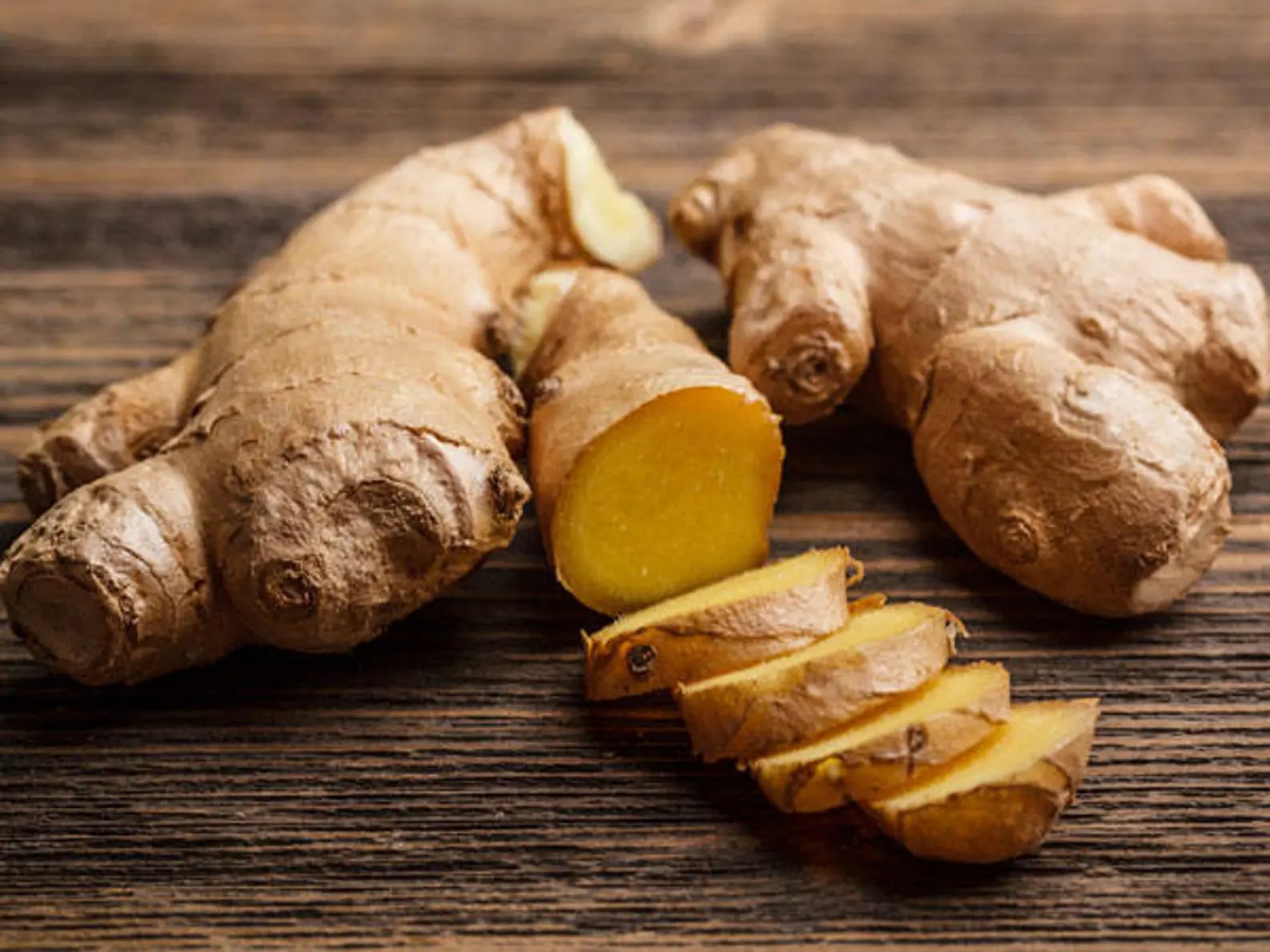Ginger is one of the most well-known and widely used spices in the world, praised for its impressive health benefits. It’s a common remedy for digestive issues, nausea, inflammation, and even colds. However, while ginger is generally safe for most people, it is not suitable for everyone. There are specific health conditions where ginger could exacerbate symptoms or interact negatively with medications.

In this article, we will discuss the health problems for which you should avoid ginger and how it might affect your body. Read on to discover when it’s best to steer clear of ginger for your health’s sake.
### 1. **Ginger and Blood Disorders: A Risk for Blood Thinning**
Ginger has natural blood-thinning properties, which can be beneficial for some individuals who want to prevent blood clots or reduce the risk of heart disease. However, if you have certain blood disorders or are on blood-thinning medications (such as warfarin), you may need to avoid ginger.
**Why Avoid Ginger?** Ginger can interfere with the blood’s ability to clot and may increase the risk of bleeding, especially for individuals with bleeding disorders such as hemophilia or thrombocytopenia (low platelet count). Additionally, consuming ginger alongside blood-thinning medications can lead to excessive bleeding or bruising.

**When to Avoid Ginger:**
– If you have bleeding disorders like hemophilia.
– If you’re on blood thinners (warfarin, aspirin, clopidogrel, etc.).
**Tip:** Always consult your doctor before adding ginger to your diet if you have a bleeding disorder or take blood-thinning medications.
### 2. **Ginger and Stomach Ulcers: Irritation Risk**
While ginger is known for soothing digestive discomfort, it can be a double-edged sword for individuals who have stomach ulcers or gastroesophageal reflux disease (GERD). Ginger, particularly when consumed in large quantities, may irritate the lining of the stomach and worsen ulcer symptoms.

**Why Avoid Ginger?** Ginger can stimulate stomach acid production, which could increase irritation in the stomach lining, making ulcers worse. For those with GERD, ginger might exacerbate symptoms such as heartburn, acid reflux, or indigestion.
**When to Avoid Ginger:**
– If you have an active stomach ulcer.
– If you have gastroesophageal reflux disease (GERD).
– If you experience frequent heartburn or acid reflux.
**Tip:** If you have stomach ulcers or GERD, it’s best to consult a healthcare professional before using ginger as a remedy for digestion.
### 3. **Ginger and Gallstones: Potential Complications**

Ginger is often recommended for its digestive benefits, particularly for relieving nausea and indigestion. However, if you have gallstones, you should be cautious with ginger consumption. While ginger can help with digestion, it also stimulates the bile production in the gallbladder, which might pose a problem for those with gallstones.
**Why Avoid Ginger?** Ginger’s stimulating effect on bile production can cause discomfort or pain if you have gallstones, as the increased bile flow may aggravate the condition. It may also lead to complications like bile duct obstruction if consumed in large amounts.
**When to Avoid Ginger:**
– If you have gallstones or a history of gallbladder disease.
– If you are recovering from gallbladder surgery or have had your gallbladder removed.
**Tip:** Speak with your healthcare provider before adding ginger to your diet if you have gallstones.
### 4. **Ginger and Diabetes: Blood Sugar Fluctuations**
While ginger is known to help with nausea and digestive issues, it can affect blood sugar levels, which could pose a problem for individuals with diabetes. Some studies show that ginger may lower blood sugar levels, which could be beneficial for some, but it may also lead to low blood sugar (hypoglycemia) in others, especially when taken with diabetes medications.
**Why Avoid Ginger?** Ginger may cause blood sugar to drop too low, especially when taken with insulin or other diabetic medications. This can result in hypoglycemic symptoms such as dizziness, confusion, sweating, and even fainting.
**When to Avoid Ginger:**
– If you are on diabetes medications like insulin or oral hypoglycemics.
– If you have difficulty managing your blood sugar levels.
**Tip:** If you have diabetes, consult your doctor to determine if ginger is safe for you and if it could interact with your medication.
### 5. **Ginger and Pregnancy: Caution During the First Trimester**
Ginger has been widely used to relieve nausea and morning sickness during pregnancy. While it can be beneficial for many women, some research suggests that ginger may not be entirely safe for all pregnant women, particularly during the first trimester.
**Why Avoid Ginger?** Excessive ginger consumption during pregnancy could potentially lead to an increased risk of miscarriage, especially in large doses. Some studies have raised concerns about ginger causing uterine contractions or affecting fetal development when consumed in high amounts.
**When to Avoid Ginger:**
– During the first trimester of pregnancy.
– If you have a history of miscarriage or are at high risk of complications.
**Tip:** If you’re pregnant or planning to become pregnant, always consult with your healthcare provider before using ginger as a remedy for nausea or any other pregnancy-related symptoms.
### 6. **Ginger and Heart Conditions: Possible Interactions with Medications**
For individuals with heart conditions, ginger may interact with certain medications or affect cardiovascular health. Ginger is known to lower blood pressure, which can be dangerous for people already on antihypertensive medication or those with low blood pressure.
**Why Avoid Ginger?** If you have heart conditions and are taking medication to manage blood pressure, blood clotting, or cholesterol, ginger may interfere with these treatments, leading to potential complications. Additionally, ginger’s blood-thinning effects may increase the risk of bleeding in individuals with heart disease.
**When to Avoid Ginger:**
– If you have low blood pressure or take blood pressure medications.
– If you are on heart disease medications, including blood thinners or cholesterol-lowering drugs.
**Tip:** Always check with your cardiologist or healthcare provider before consuming ginger if you have a heart condition.
### Use Ginger Wisely and Consult Your Doctor
Ginger is undoubtedly a powerful herb with numerous health benefits, but like all herbs and supplements, it should be used with care. If you have any of the conditions mentioned above, it’s essential to approach ginger consumption with caution. Before adding ginger to your diet, always speak with a healthcare provider, especially if you are pregnant, have diabetes, heart conditions, or any other underlying health concerns.
By using ginger wisely and under medical supervision, you can enjoy its benefits while avoiding any unwanted side effects.
